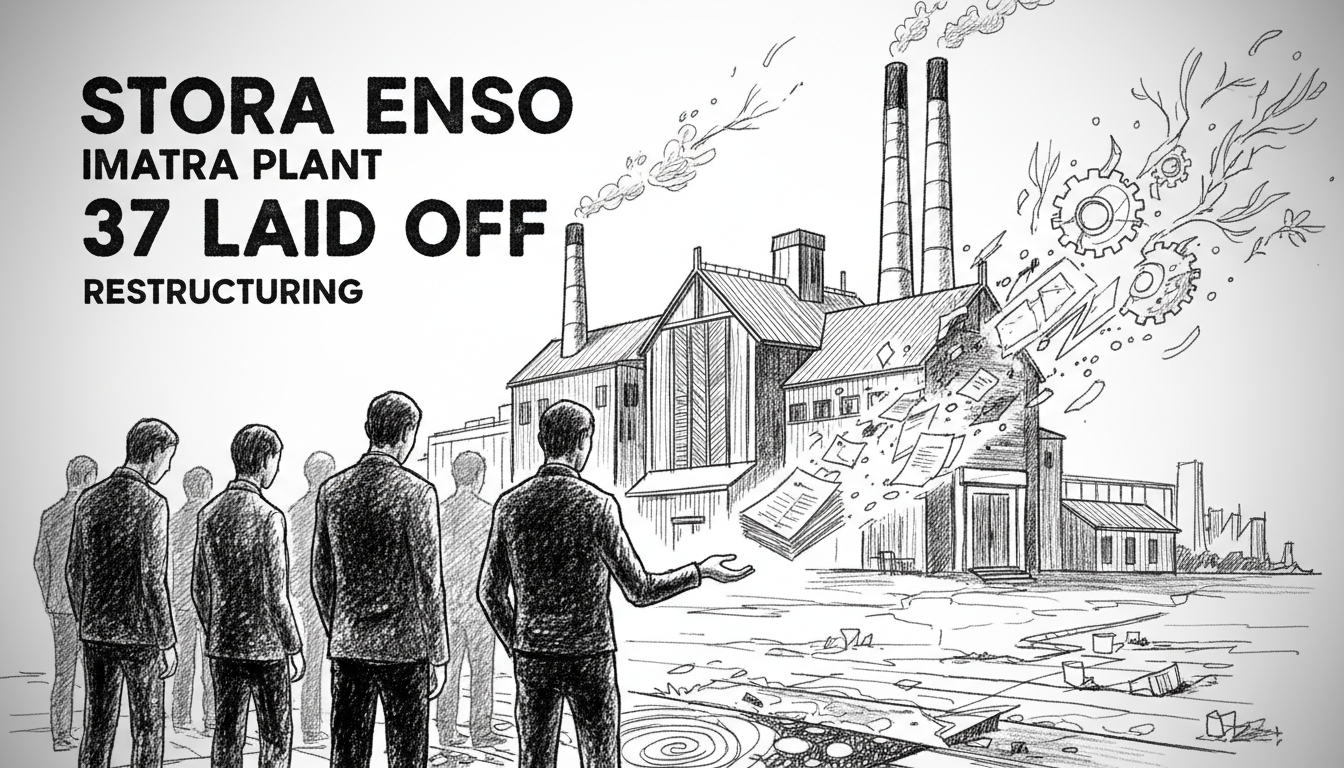Stora Enso has concluded change negotiations at its Imatra mills in southeastern Finland, resulting in 37 employee layoffs. The forest industry giant initially warned that up to 61 positions could be eliminated when negotiations began several weeks ago.
Janne Kallio, business unit director for the Imatra operations, expressed regret about the workforce reductions. He described the mood as quite speechless following the announcement. The company managed to reduce the number of layoffs through internal arrangements, including improved mobility between different departments. No entire departments will be shut down completely.
"I'm sorry we had to make these decisions," Kallio stated. "The solutions are unpleasant but necessary. The feeling is quite speechless."
This restructuring reflects broader challenges facing Finland's forest industry. European paper demand has declined steadily as digitalization reduces traditional paper consumption. The Nordic region's paper and pulp producers face increasing pressure from global competition and rising energy costs.
Stora Enso operates multiple production facilities in Finland, with the Imatra mills specializing in pulp and paperboard products. The company employs approximately 10,000 people across Finland, making it one of the country's largest industrial employers.
Finnish labor laws require extensive change negotiations whenever companies consider workforce reductions. These negotiations typically last several weeks and involve employee representatives. The process aims to explore alternatives to layoffs and minimize job losses.
The Finnish forest industry has undergone significant transformation over the past decade. Several mills have closed permanently, while others have shifted production toward more specialized products like packaging materials and biomaterials. Stora Enso itself has invested heavily in developing sustainable packaging solutions and biomaterials as traditional paper markets shrink.
What does this mean for the local economy? Imatra, a city of approximately 25,000 residents near the Russian border, has long depended on forest industry jobs. While 37 layoffs represent a modest reduction, they contribute to ongoing employment challenges in the region. Eastern Finland has experienced higher unemployment rates than the national average in recent years.
The company faces difficult balancing acts between maintaining competitiveness and preserving jobs. Like other Nordic industrial companies, Stora Enso must navigate high labor costs, environmental regulations, and global market pressures. These layoffs suggest the company continues adjusting its operations to align with changing market conditions.
Workers affected by the layoffs will receive support through Finland's comprehensive social security system, including unemployment benefits and retraining opportunities. Finnish labor market policies typically provide stronger safety nets than many other countries, though job transitions remain challenging for affected workers and their families.

